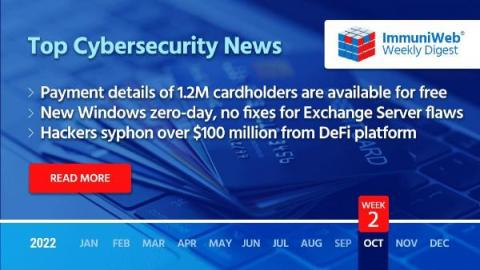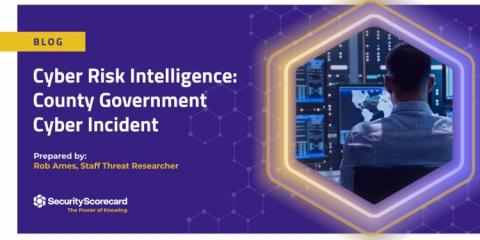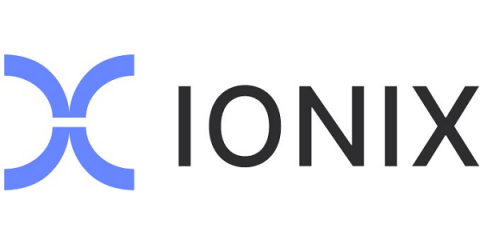Security | Threat Detection | Cyberattacks | DevSecOps | Compliance
Cyberattacks
Payment Details of 1.2M Cardholders Leak on the Dark Web
Read also: Microsoft fixes a Windows zero-day, Mango Markets DeFi platform robbed of over $100M, and more.
90% of MSPs have suffered a cyberattack in the last 18 months
MSPs are being targeted by cybercriminals, as a single successful attack opens the door to multiple victims. This puts additional pressure on cybersecurity partners to step up the security services they offer their customers. The figures are worrying, as 9 out of 10 managed service providers state they have suffered a successful cyberattack since the start of the pandemic. This means MSPs are overtaking end users as the main target of malware, ransomware, phishing and other threats.
Must-Know Facts About Evil-Colon Attacks
In a new article for HelpNet Security, Leon Juranic, security research team lead at Mend, states the case for taking proactive defensive steps against a new attack called Evil-Colon. Evil-Colon works similarly to the now defunct Poison-NULL-Byte attacks, and it has the potential to cause severe disruption to your code if not properly addressed. What does all this mean? In a nutshell, it’s possible to exploit applications that are performing path-based operations with user input in various ways.
Cyber Risk Intelligence: County Government Cyber Incident May Have Involved Social Engineering and Targeting of Vulnerable SSH Services
The government of a U.S. county announced on September 11 that a recent cyber incident had disrupted its online services. Subsequent coverage of the event has noted that it strongly resembles a ransomware attack. The disruption comes against a backdrop of frequent ransomware activity targeting state and local governments and the education sector.
How to Boost Cybersecurity in Fintech and Banking?
Globally, fintech firms saw 2.5 times more attacks in Q1 2022. The BFSI industry is prone to cyberattacks every day. Fintech firms carry some vital data. Cybercriminals know it. They aim to exploit your system’s flaw to access the data. The worst part is they will use it for financial fraud. A successful data breach causes penalties and reputation losses. It scares away your customers. It is even motivating cybersecurity in Fintech. How do you make a secure financial platform?
It's time to change the playbook: Prepare for uncorrelated surprises
Investors came into 2022 feeling good, with a three-year average annual return for the S&P 500 of 24%. In March, things changed. The Federal Reserve raised interest rates, signaling it was time to switch to bonds. The playbook said bonds were the much safer play. Then Russia invaded Ukraine. Commodity prices, especially energy and food, spiked. Supply chains broke. The E.U. faced a winter without enough energy to heat homes or power businesses.
Preventing DoS attacks in Kubernetes using Falco and Calico
A Denial-of-Service (DoS) is an attack meant to shut down a machine or network, making it inaccessible to its intended users, so dos Kubernetes is a potential target. In the case of Distributed Denial-of-Service (DDoS), the attacker will look to maintain some form of anonymity so their activities cannot be traced. They can route traffic through Tor and VPN infrastructure to scan, attack, or compromise the target, while maintaining anonymous communications.
External Attack Surface Management (EASM): What it is and what it isn't
Five worthy reads: Who let the stranger in? Video conferencing attacks
Five worthy reads is a regular column on five noteworthy items we’ve discovered while researching trending and timeless topics. In this edition, we’ll learn about the evolution of video conferencing since the 2020 pandemic, the security challenges faced by video conferencing tools, how companies and governments have acknowledged the risks, and the best practices to avoid such attacks.











